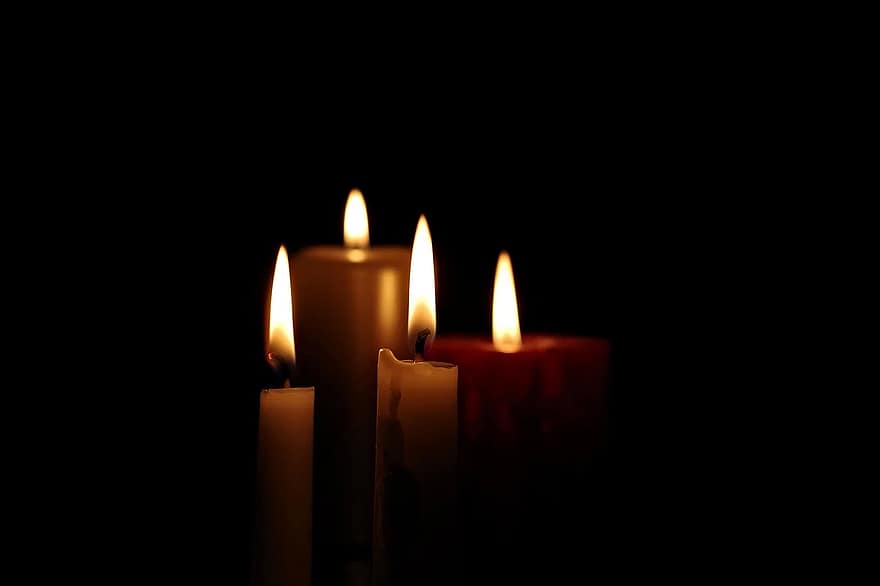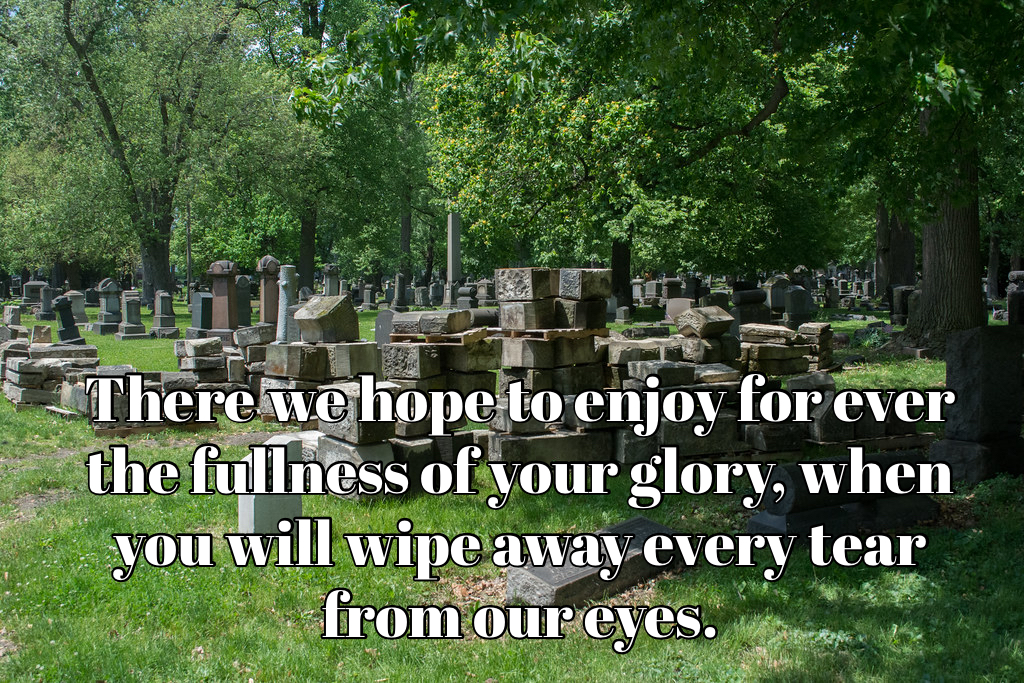Today’s readings
I can see by your attendance here today that you were not caught up in the rapture last night.
I bring this up not so much to poke fun at those who mistakenly predict the end of days, but rather to use this occasion to talk about exactly what we Catholics believe about the end times. I think at some level all of us want to know when the end is coming and what it will look like. We don’t get a clear roadmap of that, for reasons I’ll discuss later, but we do have some theology around the issue.
Whenever we want to know what we believe about something, the first places we should look are in the scriptures and in the Liturgy. So I’ll start with the Liturgy, and point out the scriptures along the way. The Nicene-Constantinople Creed, which we pray each Sunday and Solemnity, includes two statements of belief about the end of time. The first comes at the end of what we believe about Jesus Christ. It says:
He will come again in glory
to judge the living and the dead
and his kingdom will have no end.
The second statement comes at the very end of the Creed, in the part that summarizes our belief about the Church, the sacraments and eternal life:
… and I look forward to the resurrection of the dead
and the life of the world to come.
So the Creed gives us five pieces of information about the end times. First, Jesus will come again in glory. In our Gospel today, Jesus tells us: “I will come back again and take you to myself, so that where I am you also may be…” In his glorious return, Jesus will make manifest his kingdom in heaven and on earth, and all those who have believed in him will be taken to himself.
Second, Jesus will judge the living and the dead. Recall the scripture about the sheep and the goats, Matthew 25:31-46, in which those who have ministered to Christ made manifest in the poor and lowly of the world will inherit eternal life, and those who have failed to do so inherit eternal fire prepared for the devil and his angels. We believe that it is our responsibility to live the Gospel and a failure to do so manifests a rejection of Christ that is a choice to live in torment, distanced from God in eternity just as was done in life.
Third, we believe that when Christ returns, his kingdom will be everlasting. The devil may well appear to hold sway in our own time, and all it takes is a glance at the news to confirm this. But when Christ returns, all will be made new, as we read in the book of Revelation, chapter 21 (1-4): “Then I saw a new heaven and a new earth. The former heaven and the former earth had passed away, and the sea was no more. I also saw the holy city, a new Jerusalem, coming down out of heaven from God, prepared as a bride adorned for her husband…”
Fourth, there will be a resurrection of the dead. We believe that because of the death and resurrection of Christ, death is not the end for us. Those who die before Christ returns will be raised up to participate in the new, everlasting kingdom. Saint Paul tells us in his first letter to the Thessalonians (4:13-14), “We do not want you to be unaware, brothers, about those who have fallen asleep, so that you may not grieve like the rest, who have no hope. For if we believe that Jesus died and rose, so too will God, through Jesus, bring with him those who have fallen asleep.”
And finally, we believe in eternal life. In today’s gospel, Jesus says: “In my Father’s house there are many dwelling places. If there were not, would I have told you that I am going to prepare a place for you?” So we know that heaven is a place where we are to go, once we have been purified by death, and possibly purgatory (but that’s another whole homily!). Eternal life is a life of joy in heaven forever.
Getting back to the news of the last few days, in which Harold Camping of FamilyRadio.com predicted a rapture and the beginning of the end yesterday at 6pm local time, I would like to say two things. First, you’ll notice that I didn’t discuss in the five points I just made a belief in the rapture. That’s because there isn’t such a thing. Those who believe in a rapture claim that prior to the great tribulations which will precede the end times, those who have believed in Christ will be taken up, leaving everyone else “left behind.” That belief led to a whole series of popular books in the last decade. While the tribulations that precede the end were foretold by Jesus, a rapture was not. It wasn’t until the 1800s that some American fundamentalists really defined and pushed that belief. The Catholic Church has never acknowledged a rapture, it has never been revealed in Scripture or authentic Tradition, so we can dismiss it.
Second, a lot of people waste a lot of time trying to calculate the end of it all. Mr. Camping calculated that May 21st would be the end. I won’t get into how he got there, because I think the failure of it dictates that it not be given much attention, and if you really want to know, there’s a lot on the internet you can find about that. I will say that he previously predicted that the end would come in 1994, based on the same information, and claimed it didn’t come to pass due to a mathematical error on his part.
What I have to say about this is based on what Jesus tells us in Matthew’s gospel, chapter 24, verse 36: “But of that day and hour no one knows, neither the angels of heaven, nor the Son, but the Father alone.” I think that’s pretty clear: nobody gets that big picture except God the Father, so it’s extremely presumptuous to think we could ever figure it out. Shame on us if we waste our time trying.
So what do we do with all this? Should we be prepared for the end of the world? I would say absolutely yes, and always. Going back to First Thessalonians (5:2), Saint Paul tells us, “For you yourselves know very well that the day of the Lord will come like a thief at night.” Since we don’t know when the end will come, but are positive that there will indeed be an end, we need to be always prepared. That preparation should be that we continue to nurture our relationship with God by participating regularly in the sacraments, and immersing ourselves in prayer and reading of the sacred scriptures. It also includes living the Gospel: finding Christ in the poor and needy and extending ourselves to lighten their load. It means proclaiming the word by the lives that we lead and the words that we speak. It means bringing everyone we can find with us to the kingdom.
There’s a lot at stake in our Scriptures today. There is a world that needs to know Jesus so that they too can know the Father and experience the joy of a real home. There is a world that needs to know the touch of Jesus so that they can be healed and strengthened for life’s journey. There is a world that needs to hear the Word of Jesus so that they can come to the way, the truth and the life. It’s on us now, none of us can be passive observers or consumers only. As St. Peter says today, we “are ‘a chosen race, a royal priesthood, a holy nation, a people of his own, so that [we] may announce the praises’ of him who called [us] out of darkness into his wonderful light.” We are not home yet, but we can get there through our Jesus, our way, our truth, and our life.
As Saint Benedict says, “And may He bring us all together to life everlasting.” (Rule of St. Benedict, 72)


![The Fifth Sunday of Easter [A]](https://father.mulcahy.net/wp-content/uploads/2010/06/cropped-IMG_1212-e1379750321530.jpg)
You must be logged in to post a comment.